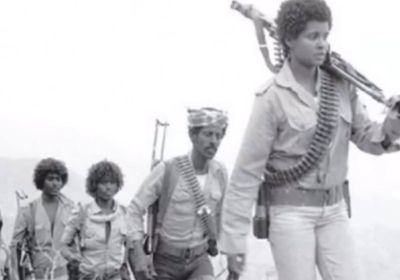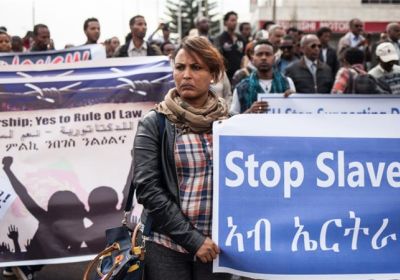-
-
 Eritrea, a small country in the horn of Africa, generally receives little attention in the international media. But in recent years there have been occasional reports of mass drownings of Eritrean refugees in the Mediterranean. As of June 2015, there were 383,869 refugees from Eritrea registered with the UNHCR. There were also 60,157 asylum seekers who had applied for refugee status.
Eritrea, a small country in the horn of Africa, generally receives little attention in the international media. But in recent years there have been occasional reports of mass drownings of Eritrean refugees in the Mediterranean. As of June 2015, there were 383,869 refugees from Eritrea registered with the UNHCR. There were also 60,157 asylum seekers who had applied for refugee status. -
Eritreans around the world will mark the country’s national day on May 24. After an epic three-decades-long liberation struggle, in 1991 the liberation forces wrested control of their capital, Asmara, from the occupying Ethiopian army. Two years later, a new, independent Eritrea was formally established. But the following years have proved a bitter disappointment for the people of this small (population five million) former Italian colony on the Red Sea.
Eritrea
Eritrea
